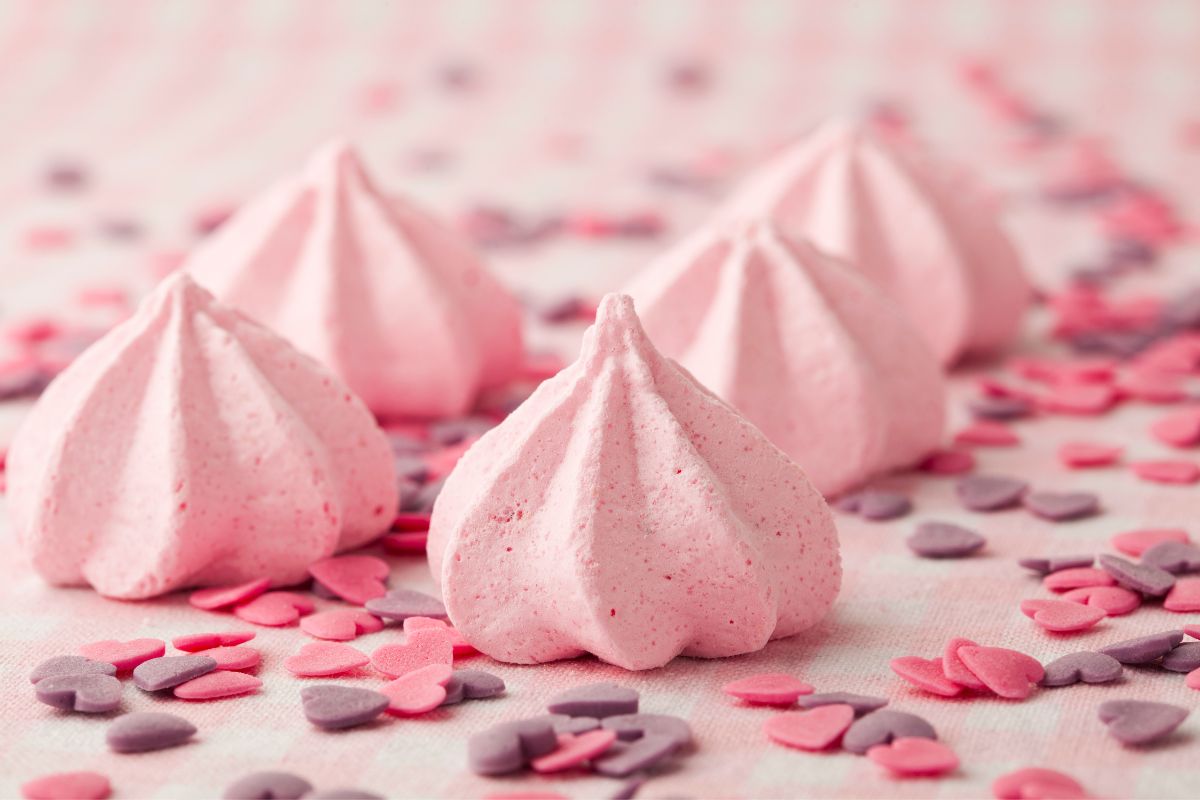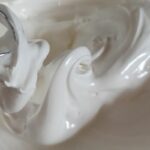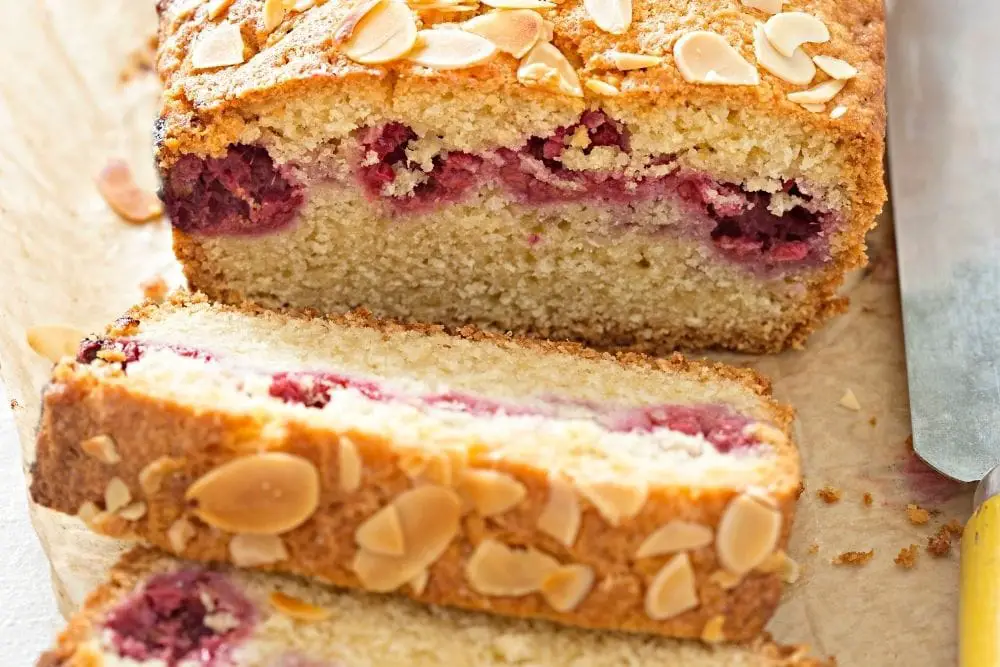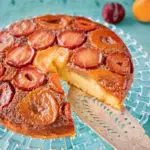Meringue is one of the most popular desserts you can make. Not only is it super delicious, but it is also extremely versatile and fits multiple occasions.
Whether you make Italian or Swiss meringue, it is sure to be a hit with friends and fellow home cooks.
Ultimately, there is nothing more satisfying than getting those stiff peaks just right, but that means that when it goes wrong and your meringue mixture ends up chewy, it can be disheartening.
This article will show you some tips and tricks for remedying your failed meringue.
Why Is Your Meringue Chewy?
The first step in fixing chewy meringue is to find out what is making your meringue chewy in the first place.
There are three main reasons your meringue might turn out more chewy than crisp.
Either, you are not mixing the egg whites enough, you are underbaking the meringue, or the humidity in your kitchen is too high.
It’s Not Mixed properly
One of the most common reasons for chewy meringue is that the room temperature egg whites haven’t been mixed properly with the caster sugar.
If the ingredients are not properly mixed, you can end up with undissolved sugar which can affect the final outcome of your meringue. This can also happen when using hot sugar syrup for meringue.
If you are new to making meringue and think this could be your issue, you are not alone. This is a common problem for bakers.
You should beat the egg whites and granulated sugar in your stand mixer for at least five minutes on high speed to ensure everything is properly combined and all the sugar dissolves.
You will know when the meringue mixture is ready when it begins to form stiff peaks.
There’s Too Much Liquid Or Sugar
Another common problem that causes chewy meringues is too much sugar or too much liquid.
If you add too much sugar to the meringue mixture, it will become too tough and you will end up with sticky meringues.
If you add excess liquid to the meringue mixture, you will end up with a runny meringue that doesn’t hold its shape and ends up chewy.
Make sure that you have an even balance between your room temperature egg whites and your sugar or sugar syrup.
This will ensure that your mixture has a stable structure that will result in a good meringue, not chewy meringue.
There’s Too Much Moisture
Something that people often struggle with when making meringues is too much moisture.
This excess moisture doesn’t come from adding liquid. Instead, it is absorbed from the air through the meringue surface.
If your meringue absorbs all the moisture that it can, it will become dense which will make it chewy when you bake it.
The Oven Temperature Was Incorrect
A final problem that home bakers often have is baking in an oven with an incorrect temperature.
If your oven is at the wrong temperature, it can cause your meringue to be undercooked and leave moisture in the mixture. This will result in a chewy texture.
To help avoid this issue, make sure that your oven preheated correctly, and use an oven thermometer to keep a more accurate eye on the temperature.
This will allow you to adjust your baking time appropriately.
How To Fix Chewy Meringue

Now that we know what might be causing your meringue to be chewy, we can look at how we can remedy the issue and perfect meringues.
There are a few simple ways that you can save your meringue after baking.
There are also some ways to help ensure your meringue mixture comes out perfect with a crunchy texture every time.
Rebake The Meringue
One of the main causes of chewy meringue is excess moisture.
If you bake your meringues and they come out with a chewy texture, don’t panic, there is an easy fix. Simply return your meringue to the oven and bake them for an additional 10 minutes.
Make sure you keep your oven at low temperatures for this, around 200 degrees Fahrenheit. This should remove any residual moisture and turn your soft meringue into a crisp meringue.
Add Cream Of Tartar
If you want to pre-empt chewy meringue and take steps to prevent it, you can add cream of tartar to your egg white mixture.
Adding a small pinch of cream of tartar to your whipped egg whites helps to stabilize them and prevent chewy meringues.
Store The Meringue In A Low-Humidity Room
We have mentioned a couple of times that moisture is a leading cause of sticky meringues.
If you are making meringue in an area that has humid weather, it is important to take steps to protect your egg whites mixture from absorbing too much moisture from the air.
To do this, simply store them in a room that has lower humidity. When the meringue has been cooked, store them in an airtight container to help them last longer.
How To Prevent Chewy Meringue
We all know that in baking and in health, prevention is better than cure. Therefore, here are some tips to help prevent chewy meringue.
The first step in preventing chewy meringue is to separate the egg whites while they are cold. This helps prevent egg yolk from getting into the mixture.
Once you have separated the egg whites, you should allow them to get to room temperature before mixing, cold egg whites won’t mix well.
When you do begin mixing, make sure that you are beating the ingredients properly.
Using an electric mixer can help. Using cream of tartar in your mixture can help avoid soft meringue, some people swear by lemon juice too.
Make sure that your oven temperature is correct to help you gauge baking time. Finally, store your meringue in a low-humidity room or in an airtight container.
Ways To Repurpose Failed Meringue
There are also some ways in which you can repurpose your failed meringues if it is beyond redemption.
Add It To A Dessert
If you feel that your meringue is beyond saving even with re-baking, you can use it to brighten up a dessert.
Chewy or runny meringue is great mixed into a chocolate mousse, or as a topping for a lemon meringue pie.
Turn It Into A Cake Topping
You can also turn your failed meringue into a delicious cake topping. This works best before you have cooked your meringue.
Simply add more sugar and whipped cream to create a beautiful, decadent frosting for a cake. This works really well with French meringue or Italian meringue.
Final Thoughts
Getting meringue just right can be a tricky skill to master, but once you do, there will be no stopping you. Hopefully, these tips and tricks will help you out.










